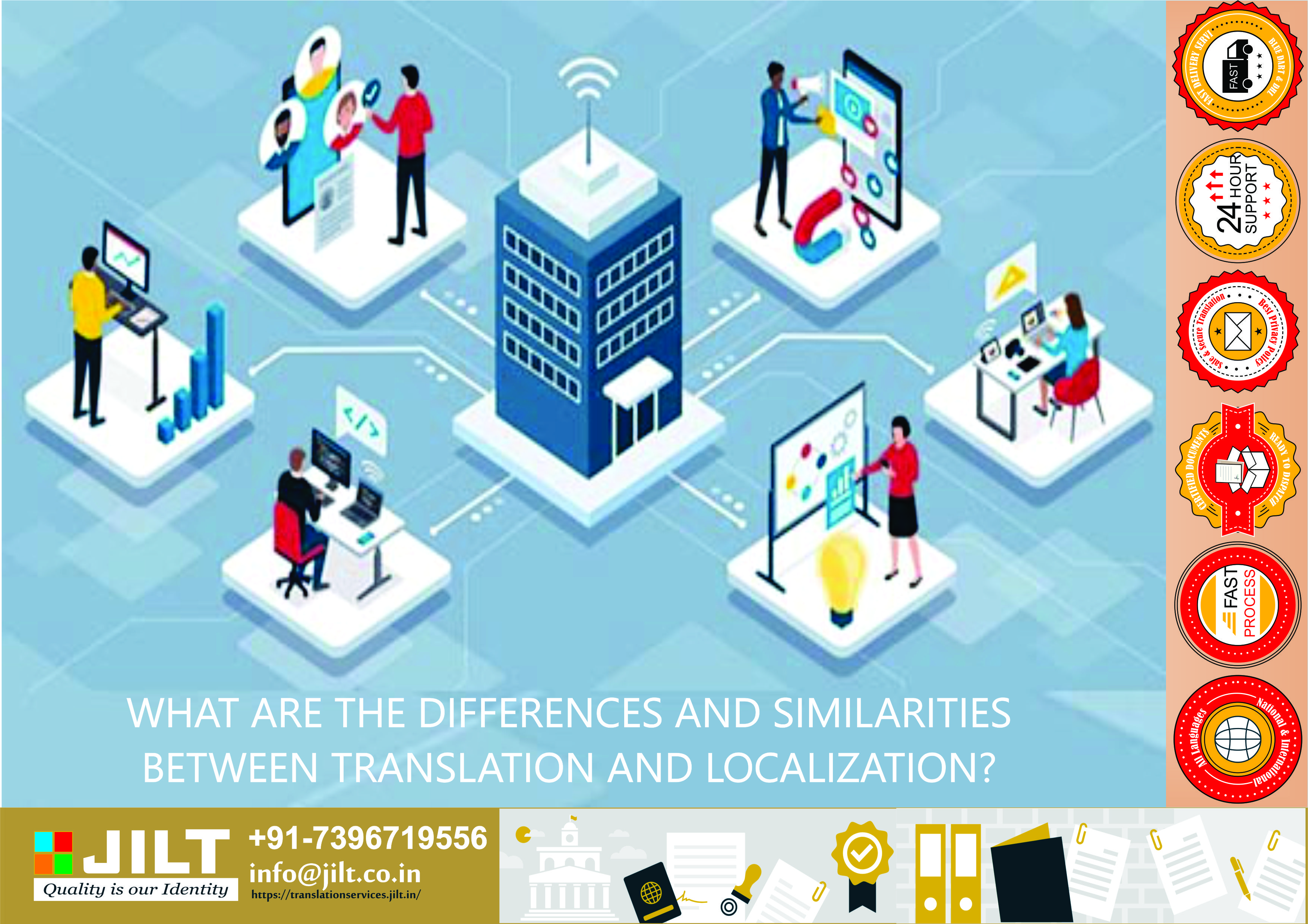
What are the differences and similarities between translation and localization?
by Dr. Abu Mazhar Khalid Siddique - December 07, 2022
Most businesses use translation and localization when they expand their operations. Tools have become essential to the world becoming a global marketplace. To break into new markets all over the world, a business must use these tools. But what are the differences between translation and localization, and when should you use each?
It's important to know that both tools are not the same. There are, in fact, some significant differences between these two tools. Let's begin by examining some of these differences, starting with the meanings.
Translations of the website.
Translation is the changing of text from one language to another with the aim of retaining the same meaning. Translation allows you to share the same message in different languages. It is often the languages which your target audience understands. Translation also takes into consideration the context of the languages. This helps avoid direct translations that are offensive or incorrect.
Localization
Localization, on the other hand, involves changing the text. Changing the source content for a new audience and culture is required in localization. You will need to change the visuals to fit the culture of the new audience. It's possible to create new content for a new audience with the same messaging.
The similarities between these two tools can sometimes be overwhelming. Let's explore further and find out what other differences are beyond definitions.
Focus on the cultural aspects of the target language.
Different views of culture can be found in translation and localization. Website translation is the same in all cultures, while website localization is more influenced by culture. The main focus of translation is getting the message across to different people.
Without considering the surrounding culture, translation does this without much consideration. As long as the context is properly translated, your project is complete.
The localization of a website goes far beyond just the language. You also have to take into consideration the target market and its cultural differences and cultural expectations. Localized content can adapt to specific regions. Unlike direct translation. This implies that localization experts need an in-depth understanding of the new culture to compare it to their language and culture. Localization services vary based on the target market and also consider social norms, slang, etiquette, and humor.
This is information that comes from having lived among or studying the people in that region. This is different from translation, where in-depth knowledge of the language matters.
There are two types of content in Translation and Localization.
Website translation is better for sharing technical information. This is because the information only needs to be understood in the language it is translated into. However, with localization, there is a need to reach people and create a connection.
People who speak more than one language often prefer to learn in their first language. For example, imagine a French person who speaks and understands English. French is more popular than English when it comes to websites. Even if they have perfect knowledge of English, this is still the case.
Content is transformed into forms that are relevant to the target audience. Cultural references from other languages are what makes multilingual websites work. The people will be able to consume the content.
Language and region should be focused on.
It is clear from the definition that translation is more about the language. It is the purpose of translation to bridge language barriers. This helps the broader audience understand the information in a proper context. There are no errors in the translation that can change meaning.
Conclusion
There are apparent differences between translation and localization. The benefits of each tool for your business, and it is important to know what works best in a situation. This will help you to get your point across without compromising yourself.
First impressions are influential in marketing. If people don't understand your content, your business may not recover. You should have a reliable provider of translation and localization services. The content that you put out will get the right message across if this is correct.
Localization, which comes from the word locale, is more related to specific regions. For example, take Coca-Cola, which is well-known throughout the world. In China, translation alone would have made it hard for people to accept the drink. Because of this, Coca-Cola had to change its brand messaging to fit that audience.
Our company has a team of translators who can quickly and accurately translate and have the translation attested, if needed, for all languages. We translate into English, Urdu, Arabic, Spanish, German, Persian, French, Japanese, Italian, Korean, Russian, and all other Indians and local languages. The translation will be checked out by our professional proofreaders. We also offer a courier service to send finished documents to our customer’s addresses.
- Also Read :- THE POWER OF EFFECTIVE ADVERTISING IN BRAND RECALL IS AN INDELIBLE IMPACT
- Also Read :- Diploma translations (JILT - Certified Translation Services)
- Also Read :- Legal Documents Translation
- Also Read :- Article of Association Translation Services
- Also Read :- TRANSLATION SERVICES FOR TECHNOLOGY
- Also Read :- Dock Receipt D/R or Mate’s Receipt Translation Service
- Also Read :- THE TOUGHEST LANGUAGES IN THE WORLD TO ANALYZE
- Also Read :- Translation and Localization for Automotive Industry
- Also Read :- IMPORTANCE AND USES OF NON-MUSLIM MARRIAGE CERTIFICATE TRANSLATION FROM ENGLISH TO GERMAN
- Also Read :- Identity card translations (JILT - Certified Translation Services)
Search
Categories
Archives by Month
Popular Blog
QUICK TRANSLATION QUOTE
Need help with a translation?
Get in touch with us
Whether you have a specific project you want to discuss, need a translation quote or simply want to discuss your requirements, do not hesitate to get in touch with us.











Social Networks